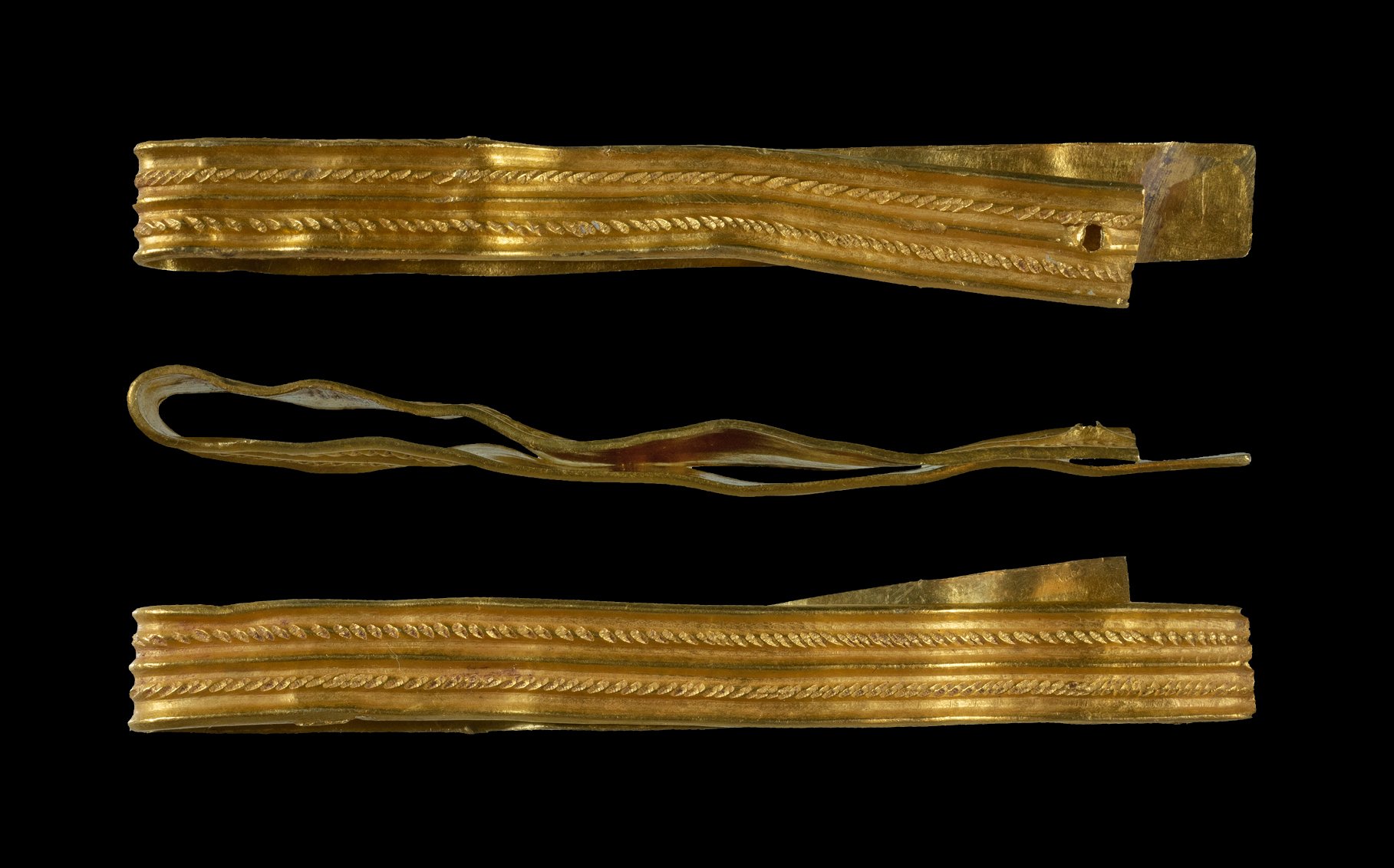A 12 year old boy and his mother have discovered a Roman bracelet whilst walking their dog near the village of Pagham in West Sussex, England.
The discovery is an armilla type cuff bracelet, an armband awarded as a military decoration (donum militarium) to soldiers of ancient Rome for conspicuous gallantry.
Roman legionnaires and non-commissioned officers below the rank of centurion were eligible for an armilla, which were worn at military parades or during a Roman Triumph to publicly celebrate and sanctify the success of a military commander.
The bracelet dates from the 1st century AD and has been declared as “treasure” by a coroner’s inquest, as the object (designated SUSS-417291) is more than 300 years old and is made from gold.
According to the Portable Antiques Scheme which recorded the find, the bracelet is a folded strip of sheet gold with five raised parallel mouldings with rib and rope styles. There are visible file marks and a circular piercing made at one end from the back through to the front.
The discovery was made by Rowan Brannan from Bognor, Sussex, who reported the find to the local Finds Liaison Officer. Archaeologists examined the artefact and authenticated it as genuine piece of ancient Roman gold jewellery.
Pagham is located not far from the Romano-British city of Noviomagus Reginorum (modern-day Chichester), capital of the Civitas Reginorum.
Noviomagus Reginorum began as a winter fort for the Second Augustan Legion shortly after the Roman invasion in AD 43. The fort was garrisoned for only a few years, before being developed as a Romano-British civilian settlement in the territory of the friendly Atrebates tribe.
Header Image Credit : Portable Antiques Scheme – CC BY 4.0 DEED
Sources : Portable Antiques Scheme





